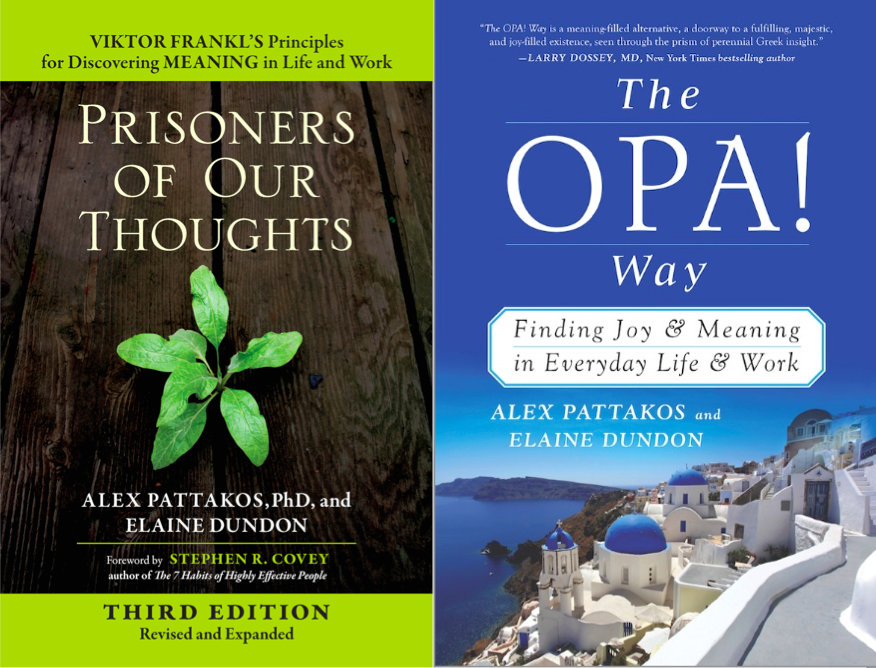Finding the Courage to Enter Life’s Labyrinth of Meaning
In the 1991 film Defending Your Life, director/writer Albert Brooks plays Dan Miller, a successful business executive who delights in taking delivery of a brand new BMW automobile. Just as he is pulling out of the car dealership, he has the misfortune of crashing into a bus. Dan does not survive the accident and soon finds himself in the afterlife, in a heavenly way station called Judgment City that film critic Roger Ebert once described as “run along the lines that would be recommended by a good MBA program.” Here, he discovers that he must “stand trial” and justify his life in order to either advance to the next, higher plane of existence or be sent back to earth to repeat his life once again.
In a courtroom-like setting, Dan is shown video clips of his life and asked to explain and “defend” why he acted the way he did, especially during those times when fear was most evident in his actions. Here is a sample of the dialogue between Dan and his defense attorney, Bob Diamond (played by actor Rip Torn):
Bob Diamond: Being from earth as you are and using as little of your brain as you do, your life has pretty much been devoted to dealing with fear.
Dan Miller: It has?
Bob Diamond: Everybody on earth deals with fear. That’s what little brains do.
. . .
Bob Diamond: Did you ever have friends whose stomachs hurt?
Dan Miller: Every one of them.
Bob Diamond: It’s fear. Fear is like a giant fog. It sits on your brain and blocks everything. Real feeling, true happiness, real joy, they can’t get through that fog. But you lift it and buddy you’re in for the ride of your life.
What lessons about real life can we find in this fictional dialogue? For one thing, fear is depicted metaphorically as the fog that blinds people in their search for meaning, both in their personal and work lives. In this context, fear relates to a person’s inability to actualize creative expression, to experience new situations and relationships with others, and to change their attitude toward something or someone.
Importantly, it was the world-renowned psychiatrist and Holocaust survivor, Viktor E. Frankl, who famously espoused that these abilities are all sources of authentic meaning and, as such, help us achieve our full potential as human beings. Indeed, to Dr. Frankl, the search for meaning is the primary, intrinsic motivation of human beings. In turn, it is this quest for personal meaning that builds—and sustains — our capacity to survive and thrive in all situations, no matter how desperate they may appear or actually be.
However, in order to find authentic meaning in our lives, we need courage, which is not the absence of fear but the willingness and ability to walk through the fear — to tread, if you will, into the darkness of life’s labyrinth of meaning. And it is during the worst times, including hardship and suffering, that our courage is put to its greatest test.
Over and over, we learn from those who have lost everything that the worst times are often the catalyst for the best times. What we learn from Viktor Frankl’s life and work is that even the most profound grief and intolerable circumstances can open us to meaning. And so can the smallest moments. All we have to do is take back the time in our lives, pay attention to the details, and know why. These are choices that each one of us must make. No matter what our personal circumstances or situation, no one can, in the final analysis, make these choices for us.
“In the concentration camps, … in this living laboratory and on this testing ground, we watched and witnessed some of our comrades behave like swine while others behaved like saints. Man has both potentials within himself; which one is actualized depends on decisions but not on conditions.” — Viktor E. Frankl, Man’s Search for Meaning
As the movie character Bob Diamond explains, most people only use three to five percent of their brain’s potential, limiting themselves because of their fears. They can’t see past their fears nor can they see the deeper meaning in the moments of their lives, which robs them of experiencing the beauty and fullness of life. Many of us can certainly relate to Dan Miller’s character and might even wonder what video clips would be shown at our trial should we end up in Judgment City and have to “defend” our life!
Many people don’t want to explore the meaning of situations in which they find themselves. More often than not, they fear what they might uncover and have to address. In short, they simply “can’t go there.” Many do not want to confront their weaknesses, choosing instead just to ignore them or, worse yet, blame others. Some people choose to busy themselves with activities and various diversions so that they don’t have to slow down and actually look at their lives. Indeed, it takes courage to go inward and lift the fog of fear that is blinding us from seeing, let alone achieving, our full potential.
Before the film of your life is finished (remember, it is still being “shot”), are you ready to explain and defend your decisions and actions? Are you ready to “defend” your life?!
__________________
Dr. Alex Pattakos and Elaine Dundon are co-authors of two international best-selling books on Meaning, Prisoners of Our Thoughts: Viktor Frankl’s Principles for Discovering Meaning in Life and Work and The OPA! Way: Finding Joy & Meaning in Everyday Life & Work, as well as are co-founders of the Global Meaning Institute and co-creators of MEANINGology, the study and practice of meaning in life, work, and society.

Originally published at medium.com


